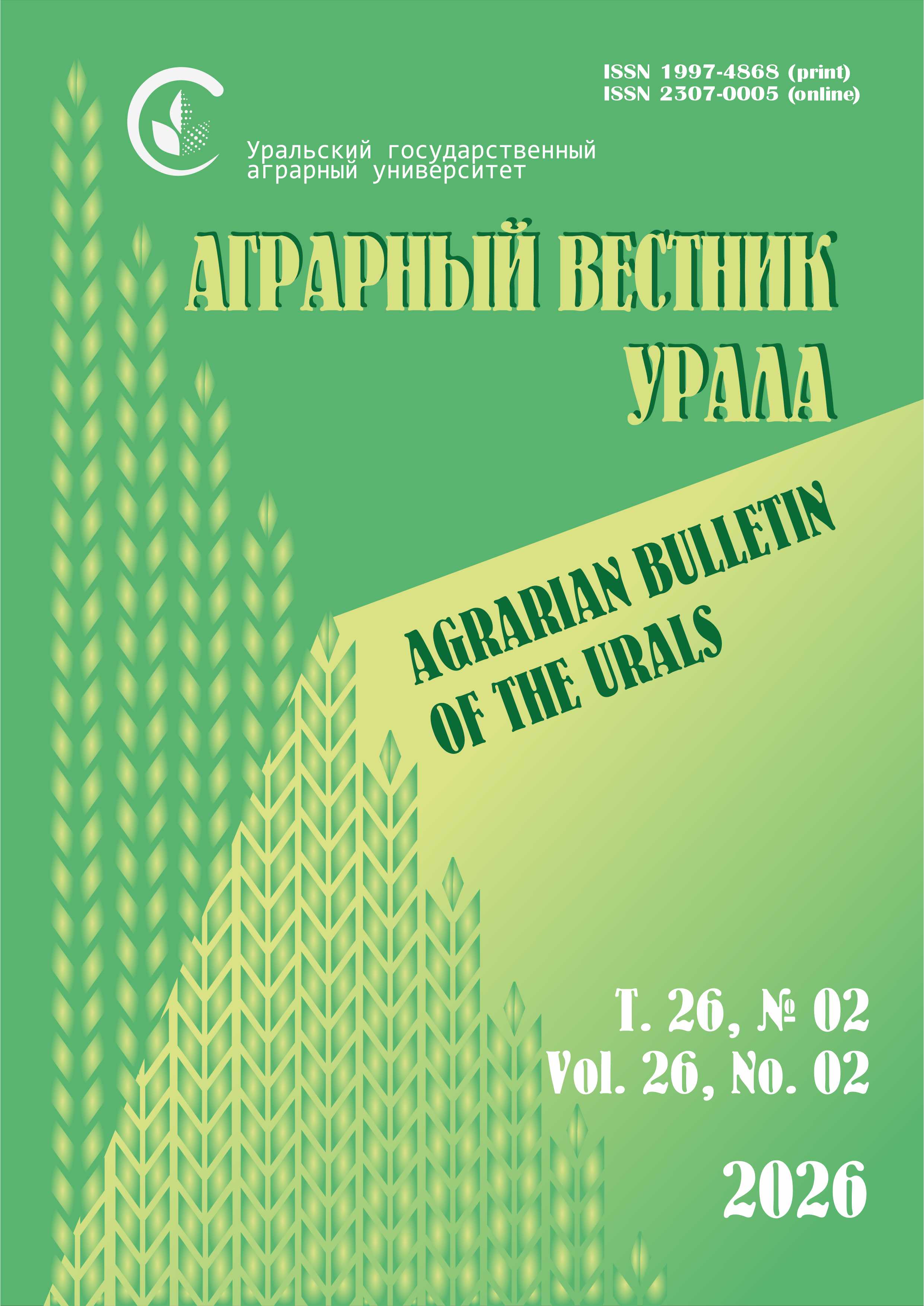T. S. Smetannikova1, 2, V. A. Filippova1, 3, E. A. Yyldyrym1, 3, I. A. Klyuchnikova1 , L. A. Ilyina1, 3
1 Saint Petersburg State Agrarian University, Saint Petersburg, Pushkin, Russia
2 Gatchinskoe JSC, Bolshie Kolpany village, Leningrad region, Russia
3 BIOTROF LLC, Saint Petersburg, Russia
E-mail: This email address is being protected from spambots. You need JavaScript enabled to view it.
Volume 24 No. 12
Date of paper submission: 13.06.2024, date of review: 10.09.2024, date of acceptance: 07.11.2024
Published: 12/28/2024
Abstract. In context of intensive animal husbandry, the body of cattle feels a lot of stress, especially during the transition period. It is important to develop a biological feeding strategy that will contribute to improving milk productivity with minimal fertility disorders of cattle. Purpose of the research is to study the effect of a biological feed additive based on a strain of the bacterium Bacillus mucilaginosus, organic acids and plant substances used during the transition period of lactation, on the indicators of milk productivity and reproduction of Holstein cattle. Methods. 40 animal analogues were divided into two groups: 1 – control group – were fed the main ration, 2 – experimental group – were fed the main ration and the biological feed additive “AntiKlos” (BIOTROF LLC, Russia). Results. Analysis of the data of lactation curves during 150 days of lactation showed that the animals of the experimental group had a higher level of milk productivity compared with the control group as at the end of the period of feeding the “AntiKlos” feed additive, as during the aftereffect (up to 120 days after calving) (P ≤ 0.05). Therefore, at the end of the feeding period of the “AntiKlos” feed active the productivity of animals in control group was 44.3 ± 1.44 kg, in experimental group – 48.4 ± 1.89 kg. Service period in the control group 1 was higher than in the experimental group 2 by 7.9 days. The insemination index under the influence of the “AntiKlos” feed additive decreased from 2.2 (in control group) to 1.9 (in experimental group), cases of detection of ovarian cysts in animals decreased by 2 times compared with the control.
Keywords: AntiKlos, feed additive, Holstein cattle, milk productivity, reproduction parameters
Acknowledgments. The study was carried out with the financial support of the Russian Science Foundation grant No. 24-16-00131.
For citation: Smetannikova T. S., Filippova V. A., Yyldyrym E. A., Klyuchnikova I. A., Ilyina L. A. The effect of a biological feed additive on indicators of dairy productivity and reproduction of Holstein cows. Agrarian Bulletin of the Urals. 2024; 24 (12): 1694‒1704. DOI: https://doi.org/10.32417/1997-4868-2024-24-12-1694-1704 (In Russ.)
Download the full text of the article












